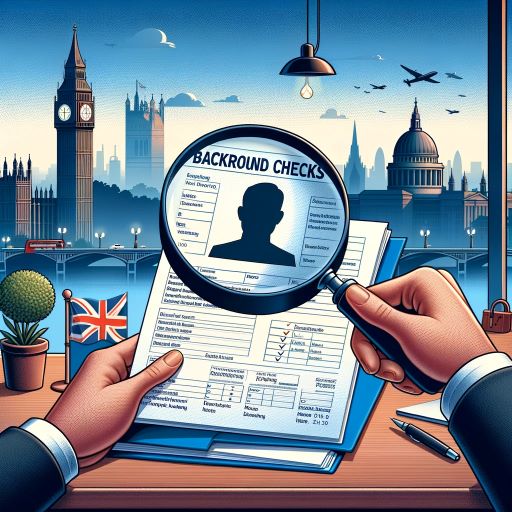

3. Some organizations may mandate more frequent renewals based on internal policies.
One of the major differences lies in the handling and treatment of criminal records. BPSS checks usually involve a basic disclosure, revealing only unspent convictions under the Rehabilitation of Offenders Act 1974. Conversely, BS7858:2019 can require a more thorough examination, potentially including spent convictions and other details depending on the risk assessment of the specific job role, reflecting its focus on positions where security is critically important.
Therefore, full disclosure and honesty regarding any unspent criminal records are crucial steps in the BPSS application process.
Baseline Personnel Security Standard (BPSS) clearance is a fundamental security check within the UK, primarily designed to prevent individuals who may pose a threat to national security from gaining access to government and sensitive information. This clearance provides a baseline level of assurance on the reliability, trustworthiness, and integrity of prospective personnel.
BPSS clearance is crucial for government administrative officers who handle confidential documents and make decisions impacting national policies.
NHS staff, particularly those in positions with access to personal and sensitive patient data, require BPSS clearance to protect patient confidentiality and ensure the integrity of medical services.
Data protection is a critical concern during the BPSS clearance process. Organizations must handle all personal information according to the UK's Data Protection Act 2018, ensuring that applicants' data is processed in a secure, lawful, and fair manner. This adherence to data protection laws is crucial in maintaining the trust of applicants and the legitimacy of the screening process.
In conclusion, digital technology has profoundly impacted the BPSS process by making it faster, more accurate, and more secure. However, it also necessitates stringent measures to guard against potential cybersecurity risks.
Remember to disclose any significant periods of six months or more spent abroad within the last three years as part of the BPSS clearance procedure. By organizing and presenting these essential documents accurately, you can expedite the verification process and demonstrate your suitability for accessing UK OFFICIAL assets.
For compliance, it is vital that employers keep records of the documents checked as part of the right to work process. These records must be stored securely and retained for the duration of the employee's employment and for two years afterwards, as stipulated by the Home Office.
A key component of the BPSS check is the verification of documents, which can be time-consuming. Verifying identity and right to work involves checks against databases and sometimes contacting issuing authorities, especially if there are concerns over the authenticity of the documents.
BPSS clearance is essential for those working in roles that require high levels of trust and integrity, especially within the UK government. Ensuring that individuals have BPSS clearance helps maintain national security and reduces the risk of insider threats. By vetting individuals' backgrounds, the government ensures that sensitive information remains protected from those who might misuse it. This process is crucial in safeguarding the nation's security infrastructure and upholding public safety standards.


From a security perspective, the right to work check is foundational in the BPSS process because it ensures that individuals are not only legally employed but also properly vetted. Illegal workers may pose a security risk as they might have circumvented the usual checks and processes designed to protect sensitive information and environments. Ensuring that all employees have been thoroughly checked and are legally allowed to work helps maintain the security standards necessary for sensitive roles, particularly in government and defense.
4. **AI Integration:** The integration of artificial intelligence and machine learning is likely to improve the effectiveness of BPSS checks, enhancing overall security measures.
While BPSS itself is not mandated by specific laws, it operates under the broader legal and regulatory framework that governs national security and employment practices in the UK. BPSS clearance procedures are based on standards set by the UK Government, particularly by the Cabinet Office, which outlines the national security vetting policies.
BPSS clearance also involves an extensive check of an individual’s right to work in the UK, ensuring compliance with the Immigration, Asylum, and Nationality Act 2006. This legal requirement helps employers avoid penalties and fines associated with employing illegal workers. It also reinforces the security of the working environment by ensuring that all employees are legally entitled to work.
Digital technology has significantly streamlined the Baseline Personnel Security Standard (BPSS) process by enabling faster gathering and verification of applicant information. Automation tools and online databases allow for rapid identity verification and employment history checks, reducing the time it takes to complete a BPSS clearance compared to manual processes.
The individual's personal circumstances can also impact the time it takes to complete a BPSS check. For example, individuals who have frequently moved or changed jobs may require more extensive checks on their background, thus extending the process.

Ensuring your legal right to work in the UK is documented is an essential step in the BPSS clearance process. To successfully verify your national and immigration status, you must provide specific documentation. Here's what you need to know:Valid documents such as a passport or a Home Office document are required to prove your national and immigration status. Valid documents such as a passport or a Home Office document are required to prove your national and immigration status.Proper documentation plays an important role in confirming your eligibility and suitability to handle sensitive government information during the BPSS verification process.
These components collectively contribute to a thorough assessment of an individual's background, aiding organizations in making informed decisions regarding their suitability for roles requiring access to sensitive information.
If you have been self-employed, invoices to clients and bank statements showing payments received can serve as evidence. Additionally, when applying for BPSS clearance, it's crucial to have your P45 and P60 forms available as they're key documents that prove your employment history.
The process usually takes approximately 4 weeks, but it can vary depending on the case.
Renewal or revalidation of BPSS Clearance depends on the organization’s policies and may require a new verification process.
BPSS Clearance is a basic level of security clearance in the UK designed to prevent identity fraud and illegal workers.